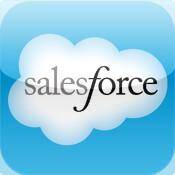
Two messages struck major chords with me. The first was the repeated claim that “salesforce.com is not a product company with a development platform; it is a company with a development platform that has products.” Its history is of course the complete opposite: The products started with CRM in the cloud and evolved to marketing and sales services in the cloud, with an array of other services never called software. It achieved this status by a combination of product development and acquisitions, all of which developed on top of Force.com, which has been renamed and expanded into the salesforce.com development platform. This shift places salesforce.com in a position where it can “own” customers, persuading them to standardize on products built on the development platform, whether they are salesforce products, in-house developed products or third-party products available through the AppExchange. The message includes the extensive integration capabilities that help companies integrate these with other internal systems and other third-party products on-premises or in the cloud. The goal is to tie companies to salesforce for the long term.
The other surprise was how extensively salesforce is getting into mobile apps. A little while back I wrote that the use of mobile devices is growing and that consumers are gradually adopting mobile apps as a form of self-service. That change is continuing, but salesforce.com seems to want to take it further. As part of the developer platform, it now has tools dedicated to helping companies build mobile apps, and so it joins the growing number of companies with such tools. However the message is about taking a different approach, which it proposes is needed to match users’ changing life and work styles. Salesforce presents this as enabling work on the move and doing “things” as apparent one-off tasks; for example, you look up someone’s details, make an appointment, open an opportunity, write up a meeting and place an order. The idea is to have an app for each of these and build systems that join them in end-to-end processes. I am not sure the market is ready for this yet, but then again no one predicted the impact social media would have on customer engagement.
Throughout the sessions there were mentions of the Marketing Cloud and how it supports companies as they move into social marketing, which is very different from traditional approaches. Against that background it was a major surprise when salesforce announced the acquisition of ExactTarget, a cloud-based digital marketing company, which takes a more conventional approach founded on email marketing. “Where does this fit in the grand strategy for Marketing Cloud?,” someone asked. “Where does this leave salesforce customers that have worked with other marketing products?,” asked another. I deduced from an analyst briefing from John Tascheck, Senior Vice President Strategy that ExactTarget has a large customer base that salesforce.com will sell into and that over time there will be rationalization of the products; so for now it is about market share and business as usual but clearly Salesforce is getting serious about meeting marketing needs by making acquisitions.
To cap all the surprises came the news that salesforce.com has signed a definitive partnering agreement with Oracle, which comes along with Oracle’s new partnering agreement with Microsoft. This one is hard to read given the contentious history between Marc Benioff and Larry Ellison, although it should be remembered that a lot of the salesforce,com products already use Oracle technology. The terms of the deal seem straightforward: salesforce standardizes on some Oracle development tools, and the Oracle HCM and financial cloud are integrated into salesforce’s; both leaders said it is important for customers to have better integration between their cloud applications. These deals could be about Oracle getting its cloud act together. It was late in moving to the cloud, so maybe these partnerships give it access to the expertise it needs to develop its cloud strategy. But if that is the case, why would salesforce and Microsoft give away their advantage? Is it plain and simply about gaining market share? If so, from whom – IBM? SAP? Only time will tell, but as many other commentators have remarked, it is a strange world we live in.

